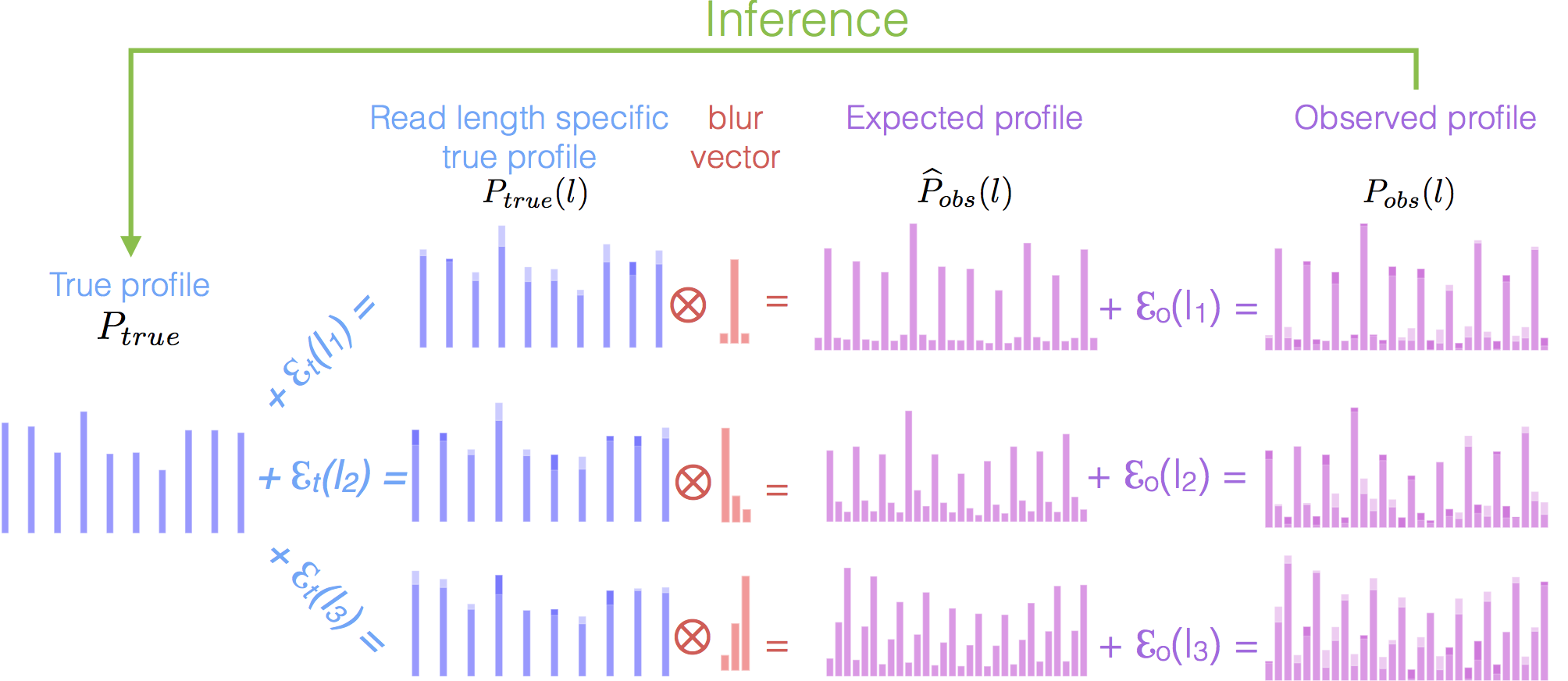About
Ribosome profiling quantitatively captures ribosome footprints during translation. The resulting profiles of ribosome locations are widely used to study translational speed. However, an accurate profile estimation depends on identifying the actively translated A-site from ribosome profiling reads, a problem that was ppreviously unsolved. Here, we propose a novel method to estimate the ribosome A-site position signals from ribosome profiling data. Our model accurately explains the 3-nt periodicity of ribosome profiling reads of various lengths, allows more footprint data to be used, and results in a profiles that is correctly highly skewed towards a single frame within a codon, while being consistent across different read lengths. The method retains sub-codon resolution in the recovered A-site position signals, making it possible to detect off-frame translational events, such as frameshifting. Using these refined profiles, we show that wobble pairing codons are translated slower than their synonymous codons with Watson-Crick pairing. Such results provide evidence that protein synthetic rate can be tuned by synonymous codon usage bias.

Citation
Hao Wang, Joel McManus and Carl Kingsford. Accurate recovery of ribosome position signals reveals slow translation of wobble-pairing codons in yeast. To appear in Recomb 2016.
Appendix
Paper appendix is available here.
Download
The analysis code is written in python, shell, and c++,
and the latest version of the source code can be found at the Github
For further details on the pre-requisites, compiling and running instructions, please refer to the README at the Github repository.
Funding
This work is funded in part by the Gordon and Betty Moore Foundation's Data-Driven Discovery Initiative through Grant GBMF4554 to Carl Kingsford. It has been partially funded by the US National Science Foundation [CCF-1256087, CCF-1319998]; and US National Institutes of Health [R21HG006913, R01HG007104]. C.K. received support as an Alfred P. Sloan Research Fellow.